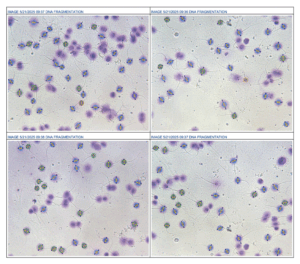When couples face challenges conceiving, the focus often falls on egg quality, hormone levels, and female reproductive health. But an equally important factor lies in the integrity of sperm DNA. DNA Fragmentation Testing has become an essential tool in IVF (In Vitro Fertilization) planning, helping fertility specialists uncover hidden causes of male infertility and improve treatment outcomes.
What Is Sperm DNA Fragmentation?
Sperm DNA fragmentation refers to breaks or damage in the genetic material carried by sperm. Even men with normal semen analysis parameters—such as motility, morphology, and concentration—can have elevated levels of DNA fragmentation. This damage can result from oxidative stress, advanced age, smoking, environmental toxins, or other lifestyle factors.
Why DNA Integrity Matters in IVF
In IVF, sperm must successfully fertilize an egg and support early embryo development. High sperm DNA fragmentation can compromise these critical steps, leading to:
- Lower fertilization rates
- Poor embryo quality
- Higher miscarriage risk
- Reduced success rates in IVF and ICSI cycles
By identifying DNA damage early, providers can make more informed clinical decisions and tailor fertility treatment plans for better outcomes.
How DNA Fragmentation Testing Supports IVF Planning
Integrating DNA Fragmentation Index (DFI) testing into IVF planning provides a deeper layer of diagnostic insight beyond standard semen analysis. The test quantifies the percentage of sperm with fragmented DNA, helping fertility specialists:
- Determine if oxidative stress or other factors are impacting sperm quality
- Recommend antioxidant therapy, lifestyle modifications, or advanced sperm selection techniques
- Decide whether ICSI or testicular sperm extraction may yield better results
In many cases, addressing DNA fragmentation issues before IVF can significantly improve the likelihood of successful fertilization and healthy embryo development.
Empowering Providers and Patients
For reproductive specialists, DNA fragmentation testing adds precision to male fertility assessment—turning assumptions into actionable data. For patients, it provides clarity, guiding them toward the most effective treatment path while minimizing emotional and financial strain.
The Future of Fertility Diagnostics
As fertility diagnostics evolve, DNA fragmentation testing stands out as a key advancement in personalized reproductive care. By combining this advanced analysis with comprehensive semen testing, clinics can optimize IVF outcomes and give couples a clearer path to parenthood.




